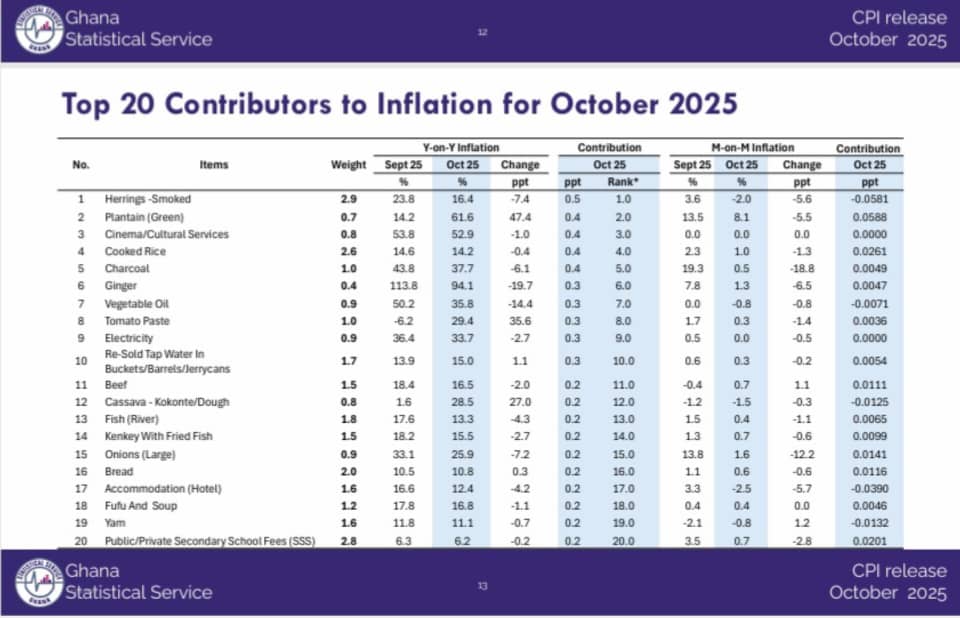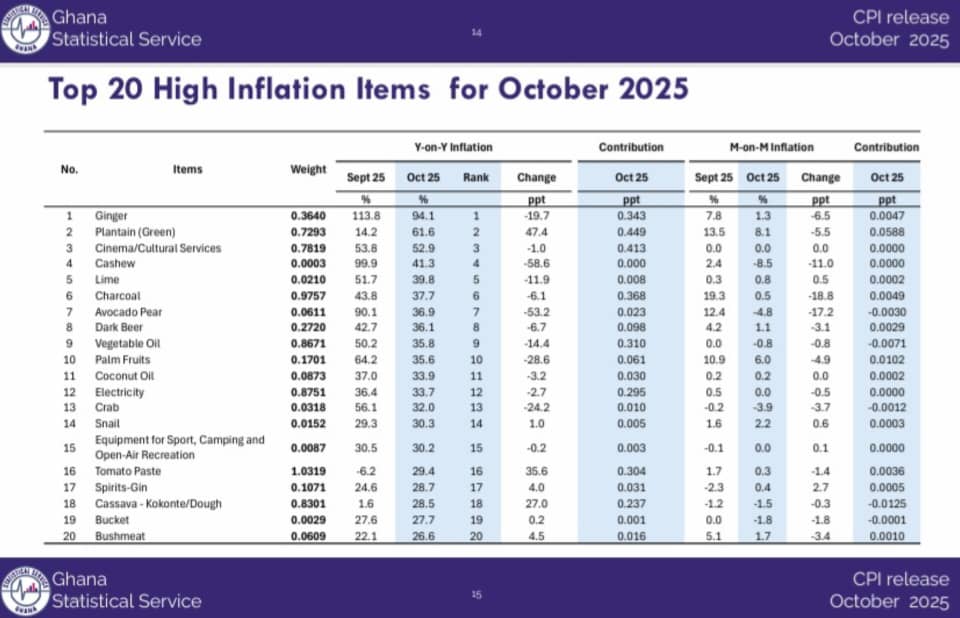Smoked Herrings, Green Plantain, and Charcoal Among Top 5 Contributors to October Inflation
Ghana’s headline inflation rate dropped further to 8.0% in October 2025, down from 9.4% in September, marking the tenth consecutive month of decline and the lowest rate since June 2021.
Announcing the new figure, Government Statistician, Dr Alhassan Iddrisu, highlighted that the October decline reflects the combined effects of a stable currency, easing transport costs, and improved food supply across major markets.
“The top five contributors to inflation in October 2025 were smoked herrings (5.9%), green plantain (5.6%), cinema and cultural services (5.1%), cooked rice (4.6%) and charcoal (4.6%),” Dr Iddrisu stated, adding that together these accounted for about 26% of total inflation for the month.

He further disclosed that the top five items recording the highest individual inflation rates were ginger (94.1%), green plantain (61.6%), cinema and cultural services (52.9%), cashew (41.3%) and lime (39.8%).
According to him, these figures underscore how weather conditions, transportation costs and local supply dynamics continue to influence price movements nationwide.

Dr Iddrisu also outlined the broader implications of the disinflation trend, stressing the importance of sustained fiscal discipline and prudent planning across all sectors.
“For government, maintaining fiscal discipline and investing in storage, irrigation and roads will help keep food prices steady. For businesses, this is a time to cut waste, improve efficiency and buy more from local suppliers. For households, take advantage of falling inflation to budget carefully, avoid unnecessary spending and save when prices are low,” he advised.
The Government Statistician described the sustained decline in inflation as a clear sign of progress, emphasizing that continued collaboration among producers, policymakers and consumers will be crucial in maintaining price stability and reinforcing economic resilience.
“If we all stay the course — producers, policymakers and consumers — we can keep prices stable and strengthen our economy together,” he added.








